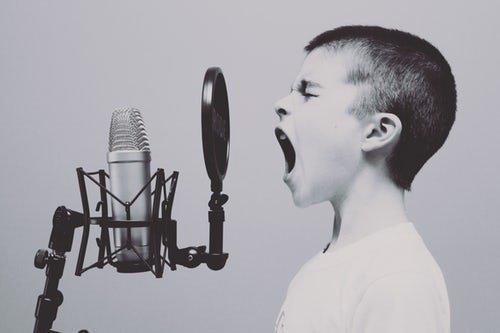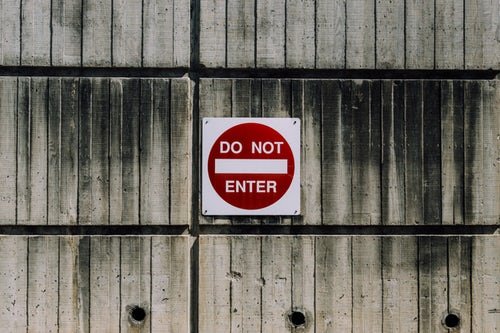Good "Bad Words:" Profanity, Communication, and the Philosophy of Swearing
Since I was a kid, I have been a fan of using the words that I was told not to use. I would swear like a sailor and giggle at the seemingly irrational, negative, responses from my peers and the adults around me. As I got older, my skills developed and I was able to use those "bad words" to great effect. Sometimes, they were very efficient at expressing an emotion. Learning to swear properly, required creativity and an understanding of the reactions of others, which made me a better communicator. On a few occasions, my goal was actually to offend a person and having a few "offensive" phrases in my arsenal was invaluable to me. However, despite the many benefits of "profanity," there are still quite a few people who frown on its use for various (often flawed) reasons. The detractors may say what they will but I think there are positive impacts on the facilitation of communication and an increased linguistic and emotional awareness associated with the use of allegedly "bad words."
The subject of this post being what it is, it should be pretty obvious that I will need to use some of these words, if I am going to discuss them. I don't believe that a block of text is ever particularly "NSFW," so I am not going to tag this post as such. However, if you find reading those words to be bothersome or if you are worried that someone is going to come by and peak over your shoulder, this is your warning. I don't believe in censorship, I refuse to censor myself, and there are likely to be plenty of the supposedly "naughty words" in the next few paragraphs.
I take issue with the concept of profanity because it is, largely, based on nothing. There is often no real difference between two words that express the same idea but we, in many cases, have been conditioned to react to them differently. Take the word "fuck," for example. In many contexts, it describes the act of having sex but it is considered to be far more impolite than the term "having sex." Both terms express the same idea. Both are short and to the point. There is no meaningful difference when they are used in the same context but one will create a negative response and the other will not. It, I believe, comes down to cultural conditioning. Someone told us that "fuck" isn't a "nice" word to say but I cannot, for the life of me, understand what that is based on. It appears to be completely arbitrary, from my perspective. I, personally, have a strong distaste arbitrary rules and pointless customs which leads me to reject validity of the value judgement that we place on certain words. One may argue that he or she is offended by the use of "bad words" but I would point out that he or she is only offended because someone has said that he or she should be. The problem lies in our reactions and not the words themselves.
Interestingly, while the weight that we attach to "dirty words" is based on arbitrary value judgments and cultural conditioning, it is that weight that gives them their power and its existence might be necessary for "bad words" to serve their communicative purposes. I will argue that they express emotion concisely and grab attention effectively but they cannot do those things if people do not attach irrational value to them. Because some find profanity to be offensive, their ears perk up when they hear it. Yelling "oh fuck" will turn more heads than yelling "oh bother" because people are less used to hearing the word "fuck" than they are to hearing the word "bother." Because we attach emotional meaning to the words, they can more efficiently express our emotional states in ways that regular words may not. There is a very stark contrast between the strength of the two following statements. "Things are not well." "I am in a world of shit." Both the former and the latter express the same idea but the second is far stronger. One recognizes that the word "shit" is being used because the speaker is experiencing a stronger than usual emotion and will respond more appropriately than he or she would have, if the speaker had used vanilla phrasing. With this in mind, it may be fair to say that our irrational reactions to these words serve as much of a purpose as the words do themselves.

The strength that we attach to "profanity" might not be based on much but it can be taken advantage of and exploited to aid in the expression of our emotions which allows us to communicate more effectively. I touched on this already but it bears further examination. Given the reactions that these words can generate, people only expect them to be used in extreme situations. When we choose to use them, a listener will understand that the emotion or motivation behind our word choice is stronger than what would be considered typical. That understanding, in the listener, will influence how he or she reacts. If someone says "close the door," the listener may take his or her time walking over to the door before closing it. If, on the other hand, the person says "close the fucking door" there may be a greater sense of urgency in the listener's action. Expressing anger or heartache can benefit from the use of "bad words" too. "I am discontented" is far weaker of a statement than "I am pissed off," for example.

"Bad words" are excellent attention grabbers and can add a great deal of emphasis to a statement. This concept functions on the same principal as using the words to aid in emotional communication. That is to say, it exploits the reactions that are generated by the cultural baggage that we attach to "bad words." Our attention is drawn to things that we consider to be out of the ordinary. Since these words are largely viewed as impolite, they are used less frequently than others. Their relative rarity, which results from the stigma that is placed upon them, makes us more likely to notice them. Because that is the case, they can be effectively employed when it is essential to attract a person's attention. Yelling "duck" may not prevent a person from hitting his or her head as well yelling "get the fuck down" because it does not cut through ambient distractions as easily. When we apply that phenomenon to regular communication, it can be used to add emphasis to various statements or parts of speech: "Did you see that cake? It was fucking huge and it was goddamned delicious, too." We know that the quoted speaker is very impressed by the size and flavor of the cake and that idea is strengthened by the use of "bad words."
Learning to swear properly, demands a certain level of creativity and emotional awareness and possessing both of those traits causes us to communicate more effectively. Blurting out a random "obscenities" is rather easy but using "obscenities" to communicate takes some practice. If a person hopes to insult someone but has no understanding of how to properly use swears, he or she will only succeed in making his or her target laugh when he or she calls that individual an "ass dick" or some other similar poorly constructed insult. To properly use "bad words," one must be able comprehend the result that a particular word or phrase will have. That requires an individual to take some time to think about what emotional response that he or she wants and what the best way to trigger it is. By employing these sorts of words, a speaker eventually increases his or her ability to read the emotions of others and to alter them with language. That knowledge, can be applied to other sorts of speech, of course, but it can most easily be born into existence by learning to swear well. Swaying emotion requires more than cleaver word choice, however, and that means that one must put time into learning these sorts of rhetorical techniques and practice his or her creativity and improvisational skills. With time, that practice, positively effects a persons general capacity for creativity and that is always a good thing, in my opinion.

Things aren't always black and white and this subject is somewhat difficult because of it's paradoxical nature. There are, obviously, times when it probably isn't the best idea to say something off color: "Your roast tastes like a soggy sack of shit, grandma." It is also to our advantage to not offend every person that we meet: "No officer, I was speeding to get ahead of that cock bag." However, I don't believe that we should that we should take those words too seriously and we certainly shouldn't ignore them because some people don't like hearing them. Their stigma is the source of their usefulness so we can't do away with that and still have them serve the linguistic function that they do now but we can say "fuck the stigma" and use them when we feel that it is to our advantage to use them. Plus, swearing is fun. Go on and give it a try. I challenge you to say something horrible and not smile about it, just a little bit.
Peace.
All the images in this post are sourced from the free image website unsplash.com.


We curse a lot in Ireland but generally not in anger, just in the normal course of conversation by way of punctuation or emphasis. For the most part, cursing is totally acceptable except when talking to children, in business or when dealing with people in authority.
To listen to the audio version of this article click on the play image.

Brought to you by @tts. If you find it useful please consider upvoting this reply.